The findings of the Citizens Inquiry can be found here. Click here to download the findings in pdf format to distribute. To become involved in the Committee to Oppose Utility Shutoffs, or for more information, click here.
At a Tuesday evening report-back meeting of the Citizens Inquiry into the Dexter Avenue Fire, about 50 Detroit-area residents voted unanimously to support the commission’s findings. The meeting established a committee to carry out a fight against utility shutoffs on the basis of these findings.
The inquiry commission issued seven major findings and six recommendations resulting from its investigation into fatal fires in Detroit homes and their connection to utility shutoffs.
Among the findings was the conclusion, "DTE Energy, its executives and regulating agencies bear primary responsibility for the deaths of Marvin Allen, Tyrone Allen, Lynn Greer, and the three Young children"—the six victims of fires in Detroit on January 5 and March 2.
Despite known risks, utility shutoffs are carried out, the commissioners found, for the enrichment of DTE executives and the company’s major shareholders. The committee called for an immediate halt to all utility shutoffs, and made an appeal to DTE workers to refuse to comply with company shutoff orders. Utilities should be nationalized and democratically run, and a massive jobs program should be put in place in Detroit and nationwide, commissioners recommended.
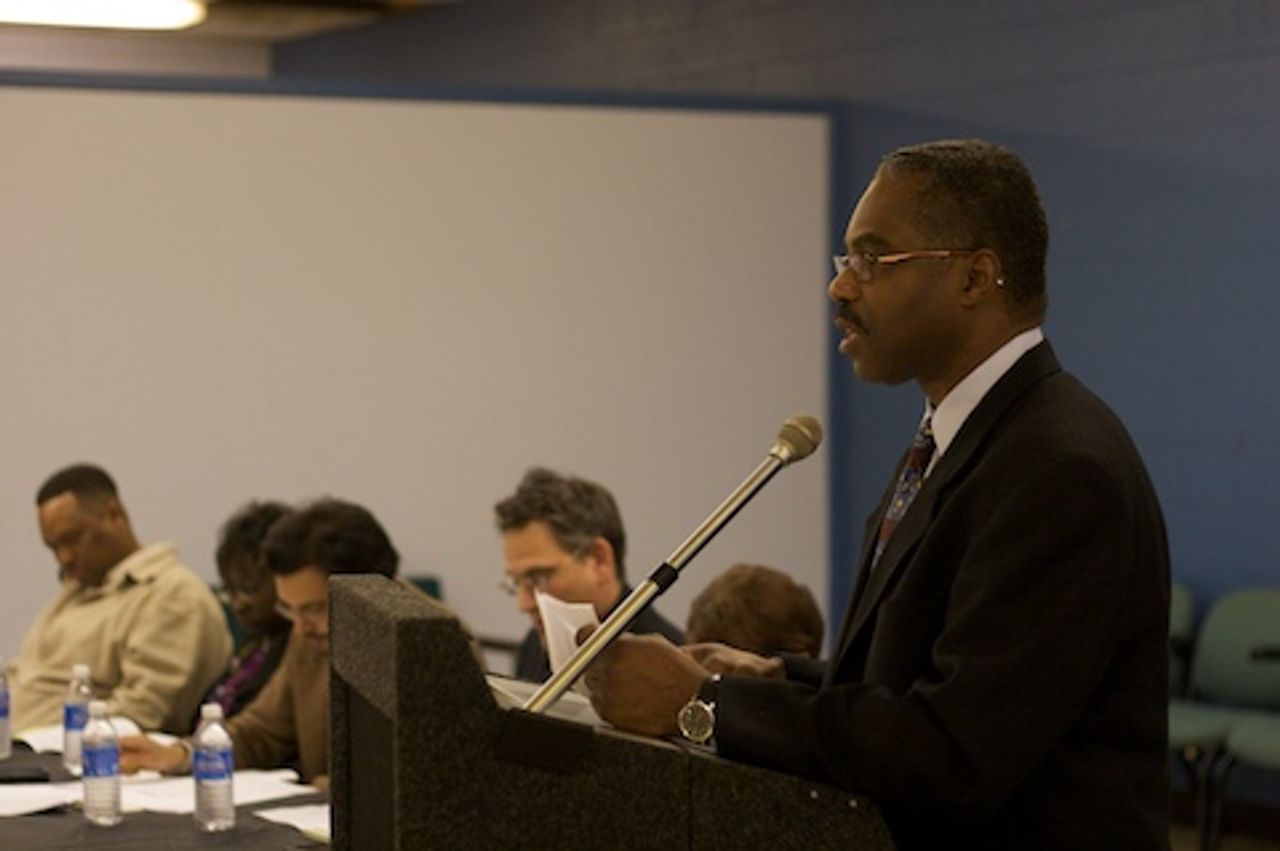 Lawrence Porter delivers the opening remarks
Lawrence Porter delivers the opening remarksThe findings and recommendations were read aloud by inquiry chairman Lawrence Porter. This was followed by a lengthy discussion in which a number of city residents addressed the meeting and raised questions.
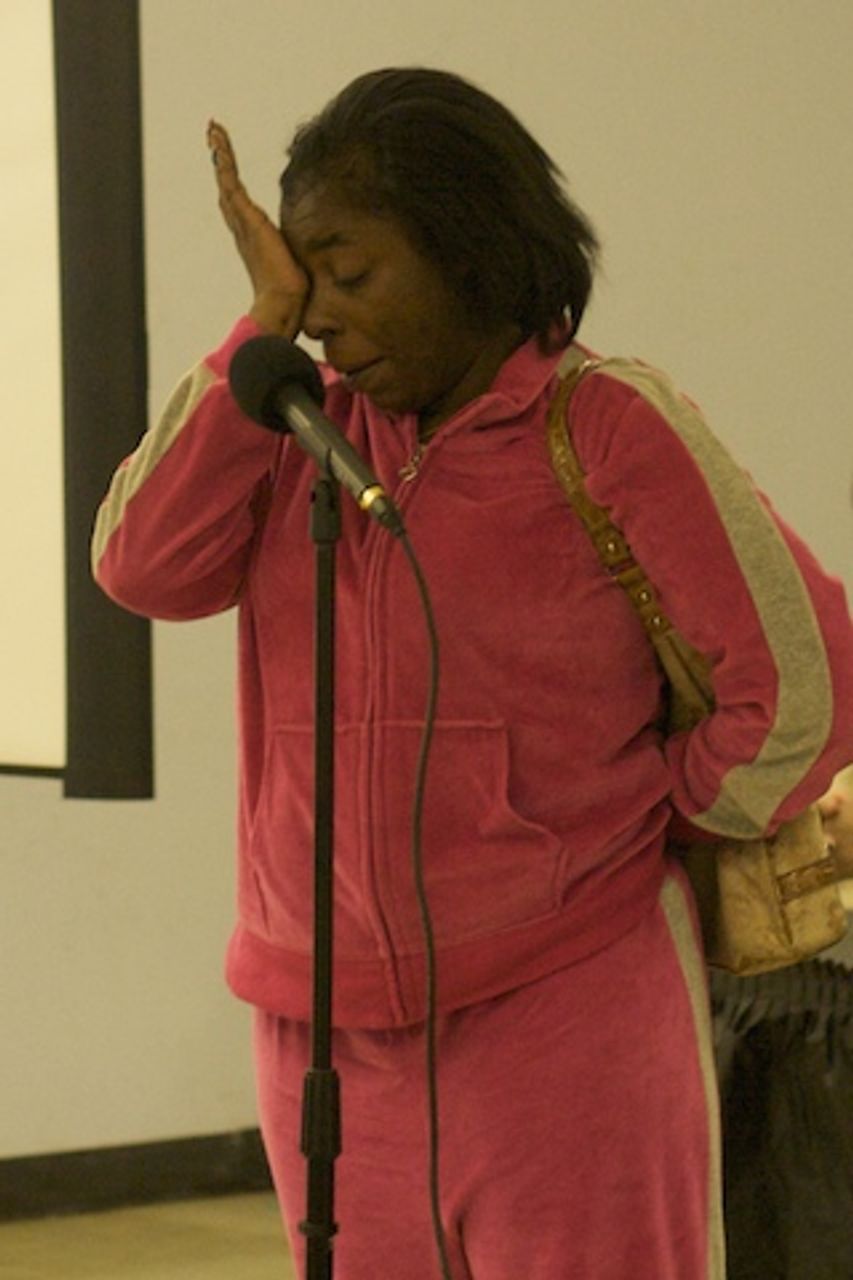 Sylvia Young spoke from the floor of the meeting
Sylvia Young spoke from the floor of the meetingSylvia Young, the mother of the three children who perished in the March 2 fire, attended the meeting. She spoke powerfully and movingly of the circumstances leading up to the fire that claimed the lives of three of her children—Trávion, 5, Fantasia, 4, and Selena, 3. Among the commission's findings was that Young was being wrongly victimized for the death of her children.
"When I first went to DTE, I owed a bill of $116," Young said. "I went to go pay, and when I left my bill was $2,128." She could not afford the "payment plan" DTE proposed, so Young rented an apartment from a landlord who said that utilities were included in the cost of rent.
Young and her children lived in the rental house for three months when, on March 2, a DTE employee appeared at her door, telling her that the utility hook-ups were illegal. "He told me he had to do his job, so he cut off the lights and the gas, and it was in the wintertime," Young said. "I went to the next thing that I knew best to do, to take care of my children and keep them warm."
The landlord soon had the electricity turned back on but not the gas. With temperatures dropping Young went to purchase space heaters to keep her children warm. "At the time I was having car trouble so I couldn't pack up my children and take them with me," she said. "If I had a choice I would have." Gone for less than a half hour, Young came back to see the bodies of children being pulled out of her burning house by firefighters.
"Now I'm being prosecuted, and I've lost my remaining four children," Young explained. "I went to court before I even saw my children. I have to get back my kids. They need me, and I need them."
"I feel like DTE is criminal," Young said. "They're robbing everybody blind. The people that are losing out are the children. Who wants to let their babies be cold, and listen to their children say 'I'm cold, I'm hungry'? That's one thing I dreaded."
Veteran fire investigator George Stewart, who also addressed the inquiry's initial hearing at Wayne State, spoke in favor of the findings. He said that in his 30-year career he had found hundreds of cases in which house fires had been caused by utility shutoffs. But Stewart spoke emphatically against blaming the victims of these fires for "energy theft."
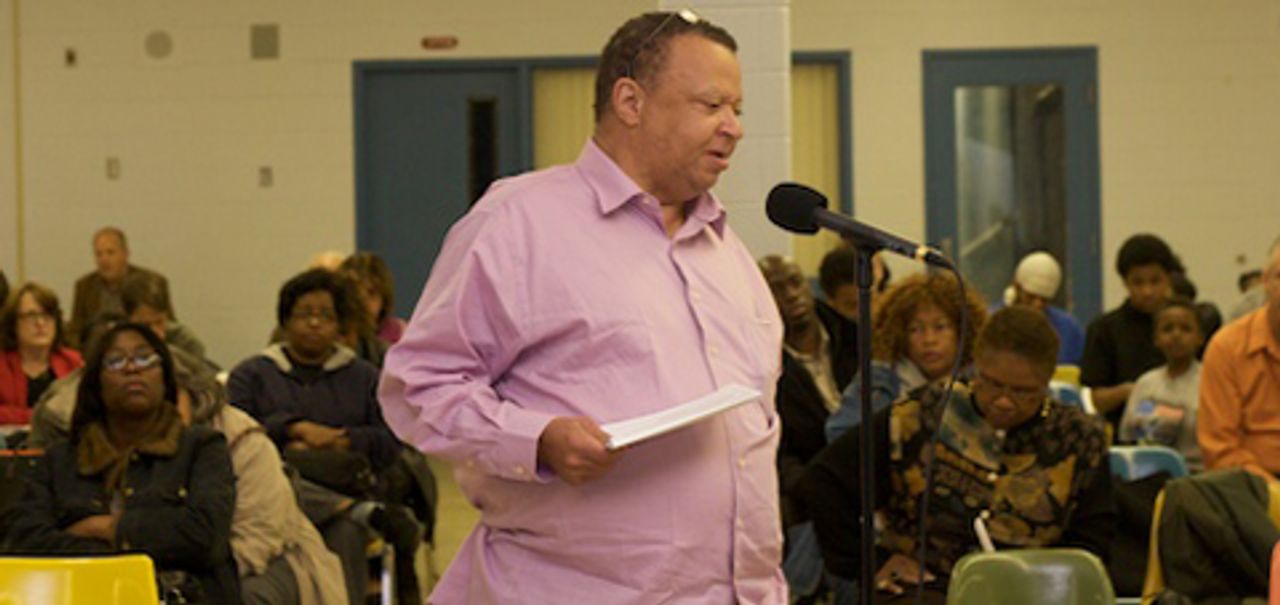 George Stewart
George StewartStewart's sons, who were in attendance, lifted up four massive volumes of his case work on fatal fires. Half of those fatal fires, Stewart said, took place in homes with inadequate heating due to utility shutoffs or because owners could not afford DTE's rates.
"In reality you have no choice," Stewart said of households that tap into the energy grid without authorization. "If you don't, your children will suffer from cold, and technically in the eyes of Social Services, you are a child abuser." Stewart also said that the claim that tapping into the energy grid is the cause of house fires is untrue, reporting that in only one of his investigations did he find that this was a direct cause of house fires.
 Lisa Flowers, with her two daughters, holds up her DTE
Lisa Flowers, with her two daughters, holds up her DTE shutoff notice
Lisa Flowers attended the meeting with her two daughters. She said that when she moved into a new residence, she found utility service was already on. She tried to report this to DTE, but was ignored. Later, however, she was presented with a $2,000 bill, which has since increased to more than $5,000. She brought the bill with her to the meeting.
Flowers said that she found there was no real help available, including from DTE's "THAW" program. At one point, DTE offered a payment plan whereby Flowers would have to come up with a $600 down payment and $400 a month. Now DTE is demanding a $1,100 down payment.
Flowers told a World Socialist Web Site reporter after the meeting that she had received a WSWS statement from an acquaintance and made copies of it for friends. "I taped one to my door so that DTE will see it when they come to my house," she said.
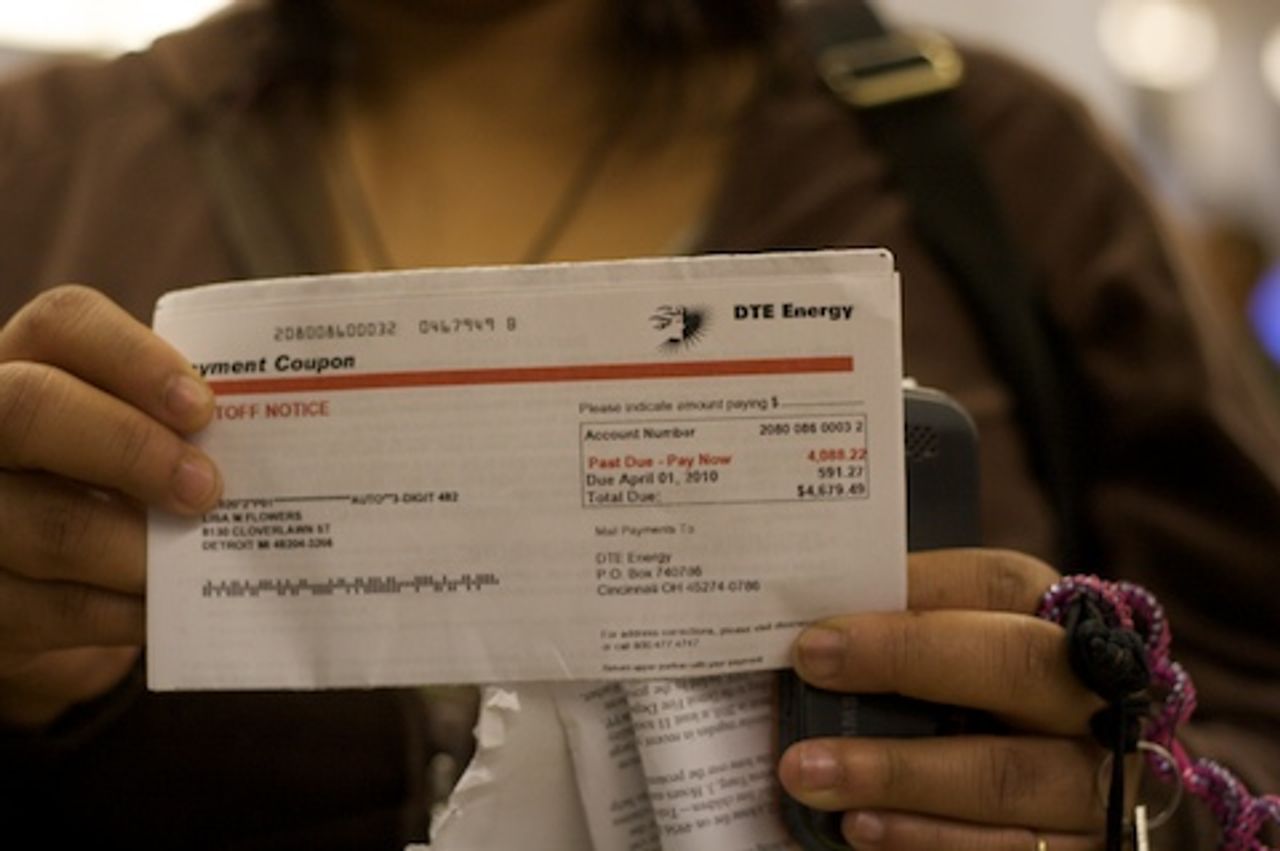 Lisa Flowers holds a shutoff notice from DTE
Lisa Flowers holds a shutoff notice from DTE
Chirine Dupree echoed Flowers' comments, and spoke in support of Inquiry Finding #2, which states that there is inadequate help for those in need. Dupree called DTE's budget plan "one of the biggest rip-offs I've ever seen."
When Dupree moved back to Detroit from Southfield, DTE told her she would have to provide a $500 deposit to receive any utilities—but not because she was delinquent. In fact, Dupree said she had never been late with a bill. DTE required the punitive payment because previous residents had not paid their bills in full.
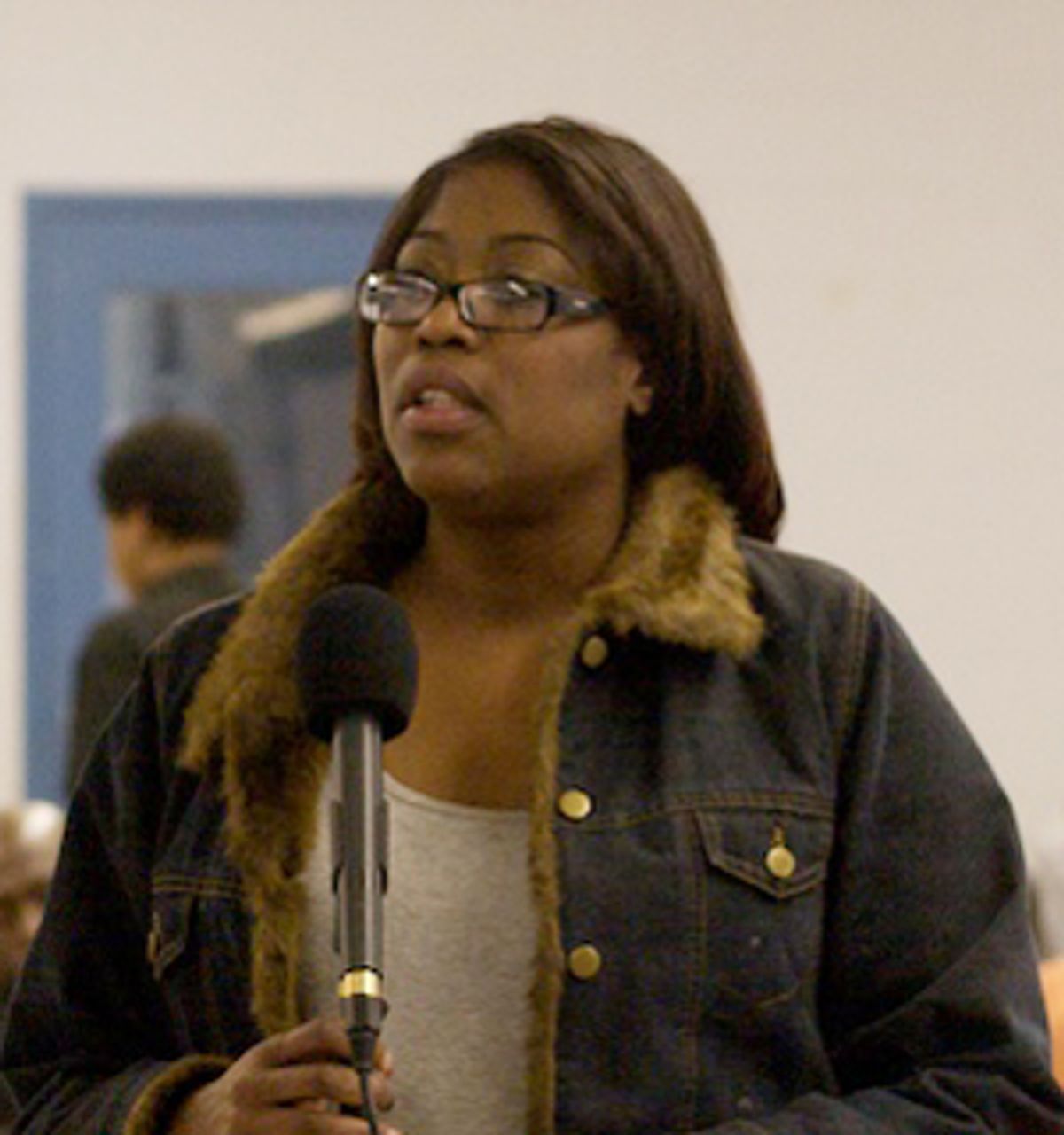 Chirine Dupree
Chirine DupreeThe $500 deposit was to be returned after 11 months, but DTE held it for several years, as return was conditioned on ontime payment for a full 11 months at a time. "They're making interest off my money for four years," Dupree said. "Can you imagine all the people who have to make deposits that they're just holding their money?"
Dupree's 64 year-old mother had to declare bankruptcy, and now lives on Social Security disability. These circumstances temporarily reduced the elder Dupree's bill to $320 per month. After Dupree's mother was late once—by five days—with a bill, DTE kicked her off their "winter protection plan" and raised her monthly utility bills to $600 per month. Her bill now stands at $2,300.
DTE's payment plans are "like a pay day advance loan," Dupree concluded, a reference to disreputable "loan sharks" who prey on the poor.
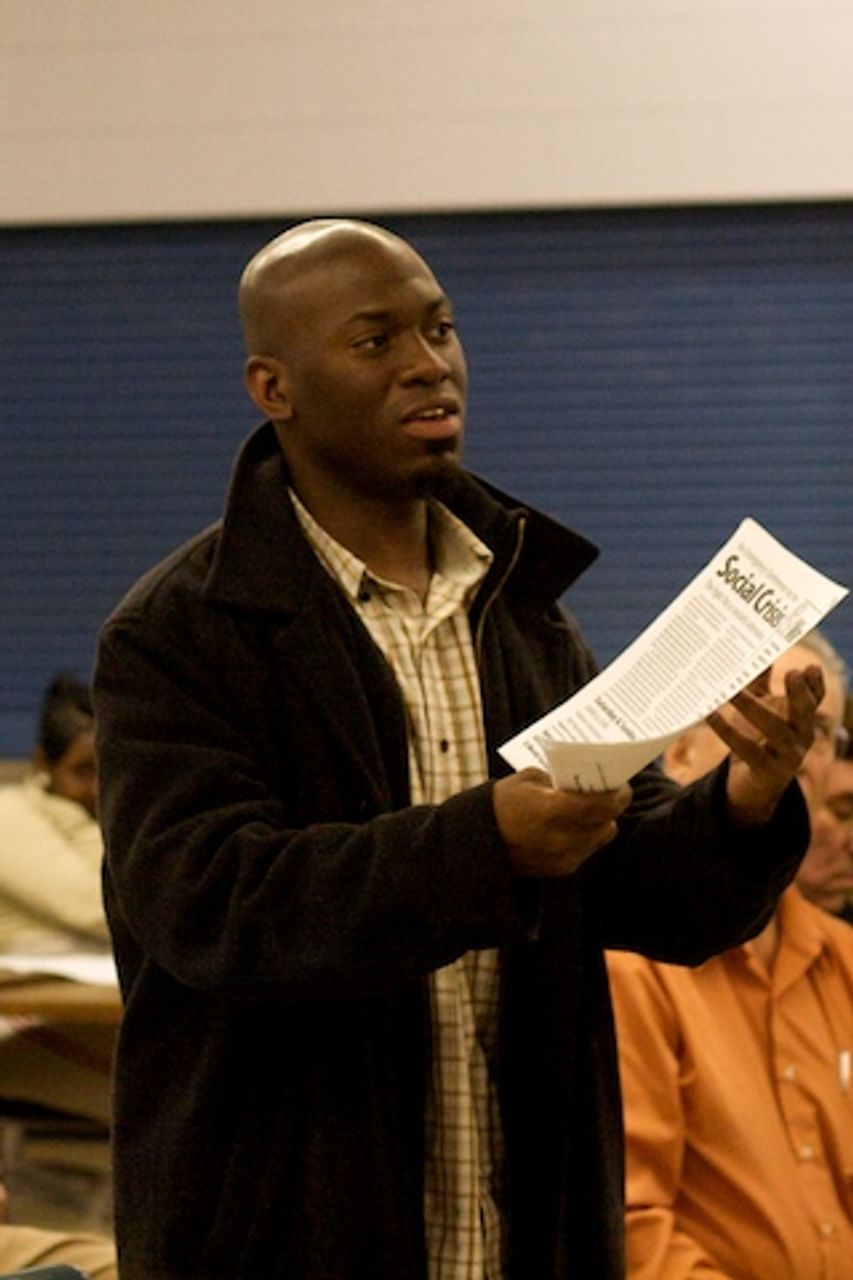 Dimetrez Griffin
Dimetrez GriffinDimetrez Griffin, also spoke in favor of the findings. "The youth of this city need to be heard," he said. "Let's get organized and fight." Griffin lived for a number of years in Atlanta, Georgia, and said he was shocked by what he found on returning to Detroit, the city of his birth.
Inquiry Commissioner Jerry White also addressed the meeting, pointing to the similarities between the tragic house fires in Detroit and the recent coal mine disaster that claimed the lives of 29 West Virginia miners. White said that in West Virginia, mine owner Massey Energy openly flouted safety violations "because it knows that the government will protect it no matter what it does."
"In that respect Massey is no different than DTE," White said. "DTE carries out a policy that it knows will lead to death but it is protected by the Michigan Public Services Commission."
"Detroit is a city with many black workers, West Virginia is a rural area with many white workers." White explained. "Yet the same sacrifice of human life for private profit goes on."
Responding to a question from the audience, White said the purpose of the Citizens Inquiry was not to appeal to DTE stockholders or politicians "from Bing to Granholm, Bush to Mr. Obama," but to appeal to the working class population as a whole, including DTE workers. White's comments were met with applause from the audience.
Socialist Equality Party National Secretary Joe Kishore argued that the fundamental issue is the subordination of social needs to the profit drive of the elite. "To DTE, the victims of house fires are collateral damage in the pursuit of wealth," he said. "Everything is sacrificed for profit."
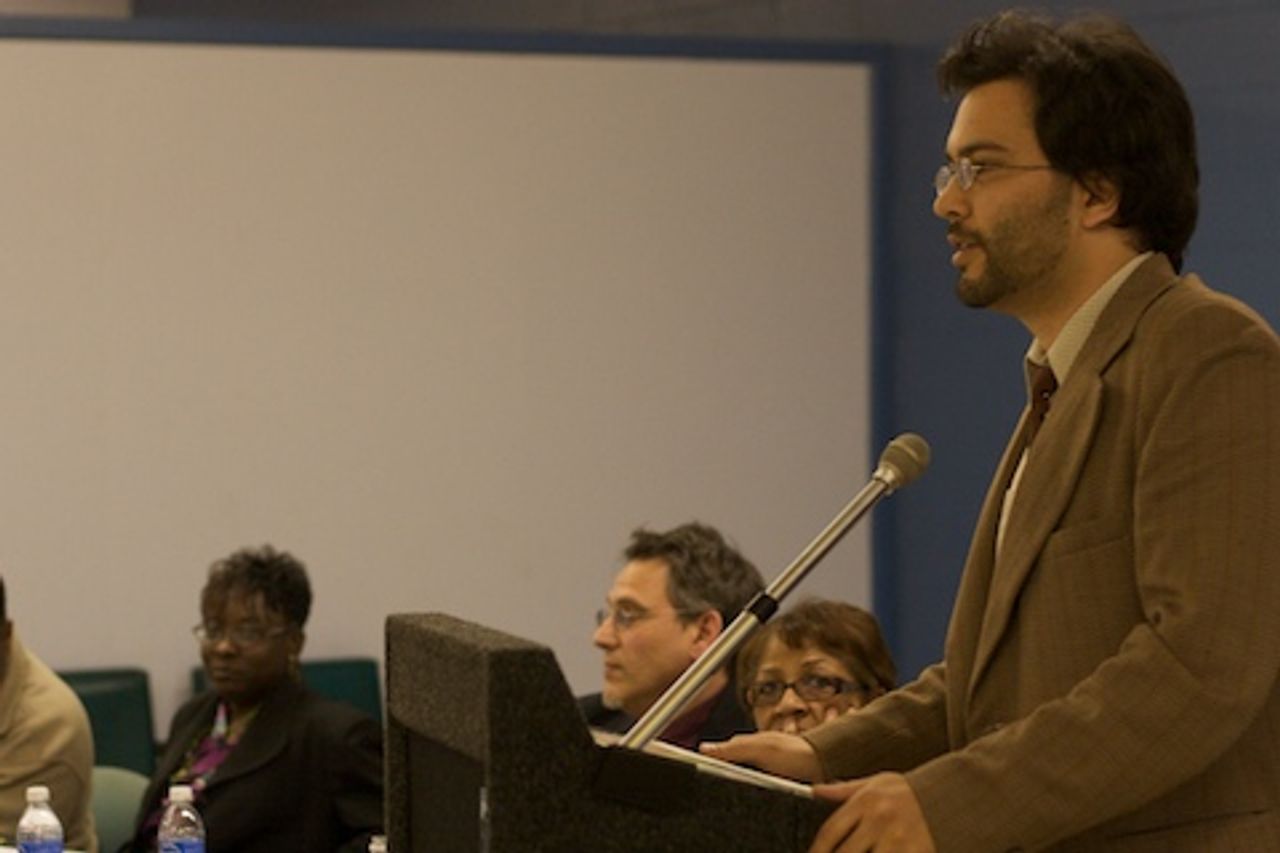 Joe Kishore, SEP National Secretary
Joe Kishore, SEP National SecretaryKishore said that the conditions in Detroit are a microcosm of social relations throughout the US and internationally. The bailout of the banks by the Obama administration has produced unprecedented wealth for a tiny layer of the population, he noted, pointing to a recent report that the top 25 hedge fund managers in the US had combined pay of over $25 billion in 2009. This would pay for more than 6 million $4,000 utility bills, Kishore said. The working class around the world was being made to pay.
Kishore explained that the common experience of those attending the meeting demonstrated that the problem of utility shutoffs was not an individual problem, but a social one. "It therefore requires a social solution," he said, directed at the entire capitalist profit system.
"It is necessary for the working class to fight back," Kishore said, calling on all those in attendance to distribute the findings of the commission by the thousands to residents in the Detroit area, join the committee to opose utiltiy shutoffs, and to come to the SEP's Emergency Conference on the Social Crisis & War on April 17-18 in Ann Arbor, Michigan.
A vote was then taken and the commission’s findings were passed unanimously. The meeting created a committee to carry on and deepen the struggle against utility shutoffs and house fires. (Click here for more information or to join the committee)
